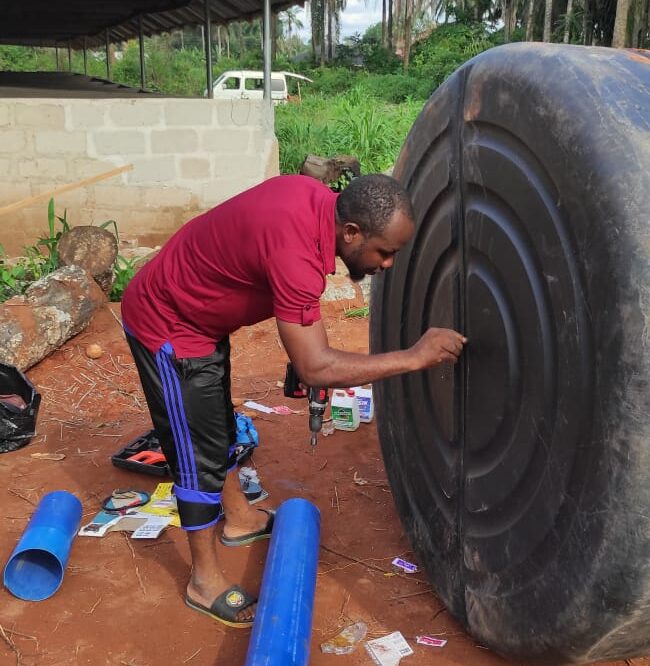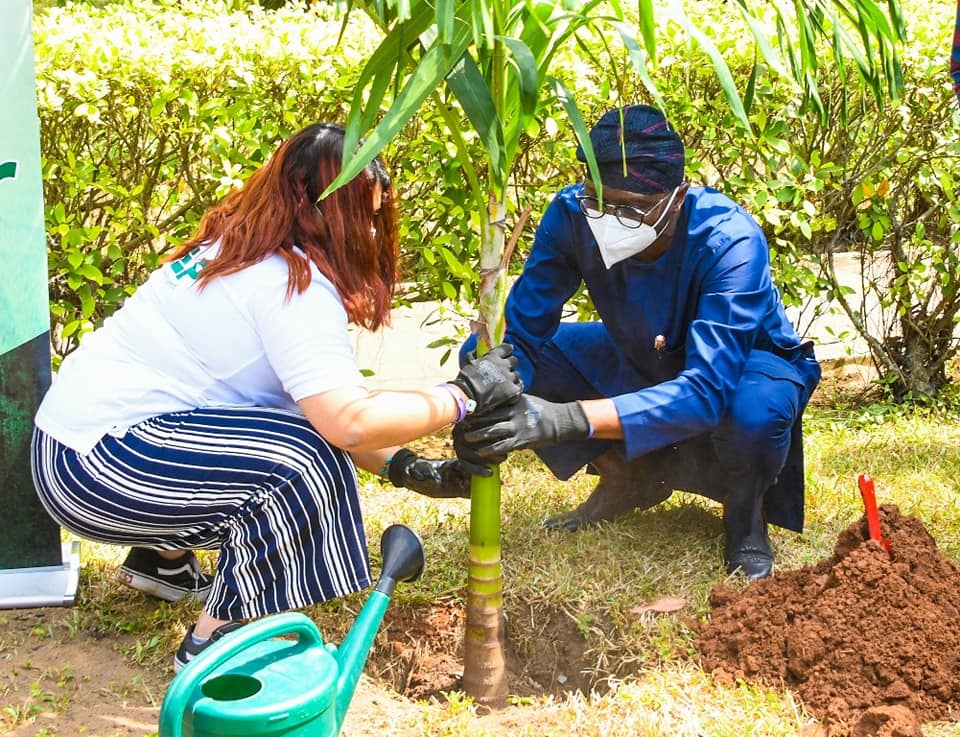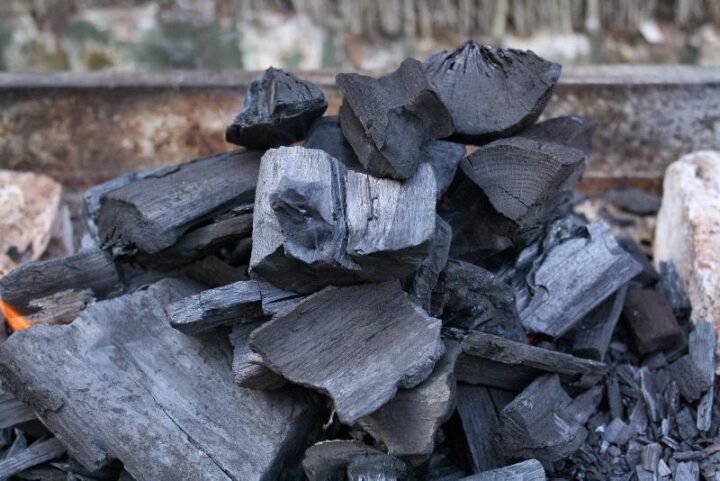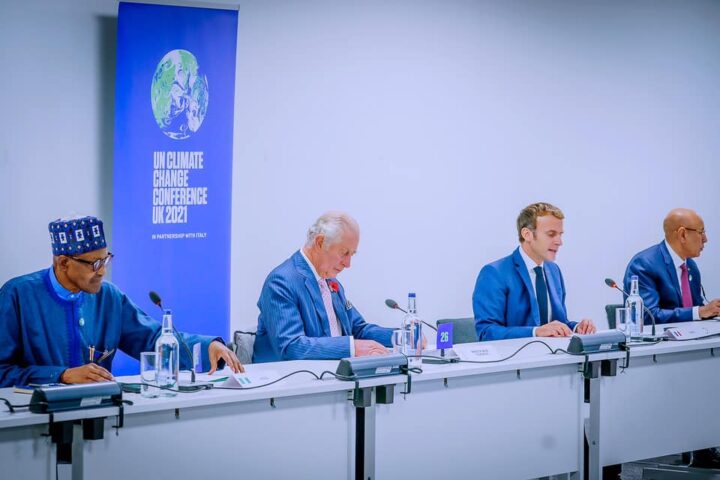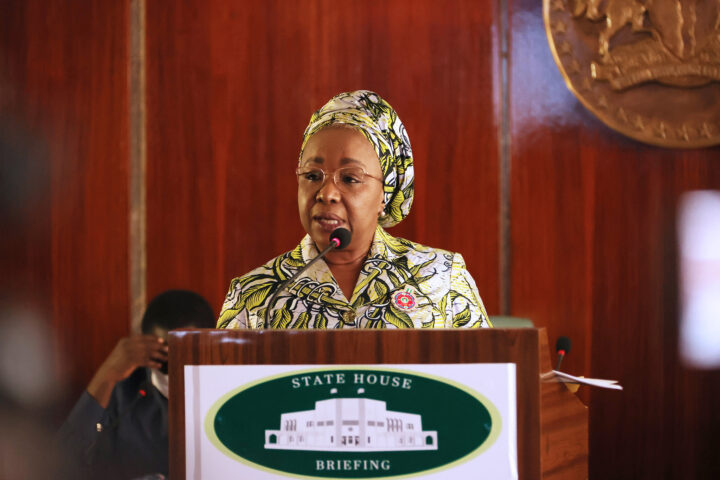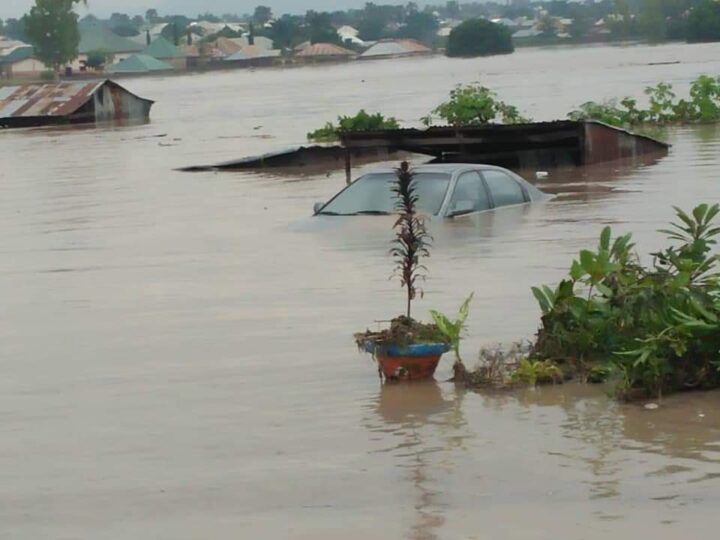With 32 million tonnes per year, Nigeria generates one of the highest amounts of solid waste in Africa. Ikechukwu Obioma from Okwudor in Njaba LGA of Imo state has found value in human faeces, cow dung, leftover food and other biodegradable waste products which many consider useless. He turns them into biogas which can be used in place of natural gas.
Thirty-three-year-old Obioma came across a journal about biogas technology when he was a student at the Institute of Management and Technology in Enugu state and, ever since, he had nursed the dream of creating a life around that.
In 2019, he had to drop out of the Institute of Management and Technology in Enugu owing to financial constraints and started repairing phones to cater for himself and his siblings since their parents had died. From the petty business, Obioma was able to raise the funds to travel to Kenya to learn biogas installation.
“I came across biogas technology in 2018 from an online journal. I picked interest and discovered an institution that trains people on it in faraway Kenya. In early 2019, I travelled there and got the training. In late 2019, I started installing it for individual homes and farms. It has been a smooth ride as many Nigerians are coming to terms with the technology, ” Obioma told TheCable.
Advertisement
Obioma returned to his home country to set up a biogas construction company that specialises in recycling waste while at the same time providing a clean source of energy for society.
THE BIOGAS TECHNOLOGY
Biogas, an environmentally-friendly and renewable energy source, is a type of biofuel that is naturally produced from the decomposition of organic waste. Biogas is generated through anaerobic digestion, a natural process in which microbes digest organic material in sealed containers, producing biogas that can be used for cooking, heating, cooling and electricity production or upgraded and used for vehicle fuel or gas-grid injection.
Advertisement
When organic matter, such as food scraps and animal waste, breaks down in an anaerobic environment (an environment without oxygen), it releases a blend of gases, primarily methane and carbon dioxide and can be used as a renewable source of energy called biogas.
Obioma said the major challenges facing the acceptance of the initiative are societal stereotypes and the cost of the installation, saying that he gets more subscribers in other African countries than Nigeria.
“So far, the challenge centred on awareness. Being a new technology here, people are finding it difficult to understand the concept. I have also tried to reduce the cost of the installation to enable more homes to have the facility because finance is also part of the challenges why many people are yet to accept the technology,” he said.
“What Nigerians need is awareness. Most of my work is in Ghana and Togo. The construction that I have done in Togo and Ghana alone should be over 60 because they value what I have.”
Advertisement
CAN IT REPLACE NATURAL GAS?
Azubuike Chinomso, a resident of Owerri, Imo state capital, was frustrated by the continuous increase in the price of liquefied petroleum gas (LPG) when he came across Ikechukwu on Facebook.
She later switched for biogas which cost her barely anything other than her kitchen waste and leftover food in her household.
“I met him when the high cost of LPG gas was becoming so annoying and it doesn’t even last at all as if it’s ordinary air they put in the cylinder,” Chinomso said.
Advertisement
According to the National Bureau of Statistics(NBS), the average price for refilling a 5kg cylinder rose to N2,215.33 in August from N2,141.59 in July showing a 3.4 percent increase, and to N2,397.60 in September 2021, representing an increase of 8.2 percent.
Chinomso said she scavenges for waste to fuel the gas.
Advertisement
“Do you pay to trash your waste?” she asked when this reporter asked about the cost of maintaining the biogas. “It has no maintenance fee. I only make use of my kitchen waste like kitchen leftover food. Before I installed it, I was seeing it as too expensive; but after the installation, it was really worth more than the money paid,” she added.
CAN THIS CONTRIBUTE TO CLIMATE CHANGE MITIGATION?
Advertisement
As the world continues to writhe under the effects of climate change, the need to invest in clean sources of energy has become imperative. Nations have been encouraged to reduce their carbon footprints by investing heavily in clean technologies to completely decarbonise our energy supply and one of the most efficient ones is a renewable energy source like biogas.
“This technology called biogas can turn your waste to clean cooking gas, I mean clean cooking gas at the comfort of your home. That food waste you throw away every day and the faecal waste you pay money to evacuate, this can give you clean cooking gas and you will save money from parking your waste every day,” Obioma added.
Advertisement
A 2018 report placed Nigeria as one of the 10 most vulnerable countries to climate change in the world. According to the federal ministry of environment, Nigeria generates one of the highest amounts of solid waste in Africa, with 32 million tonnes per year. Most of these, however, end up in landfills, sewers, beaches, and rivers.
Biogas is considered a more sustainable source of gas, unlike traditional gas which is obtained by drilling into the earth.
According to a report by the World Biogas Association(WBA), biogas can reduce global emissions by 18 to 20 percent. During the COP26 summit in Glasgow, stakeholders observed that biogas could play a big role in the fight against climate change as it serves as a clean source of energy, sustainable management of waste, and production of renewables.
Add a comment
